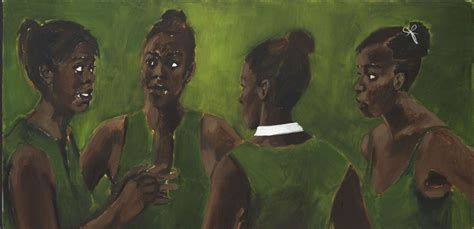A Quote by Christopher Moore
When you're telling stories, you are actually trying to illuminate some portion of the truth in an artful way. The story may immediately seem to be a lie, but it's like an impressionistic painting - you see the light and the color better than you would with a photo-realistic piece.
Related Quotes
It is better to be divided by truth than to be united in error. It is better to speak the truth that hurts and then heals, than falsehood that comforts and then kills. It is better to be hated for telling the truth than to be loved for telling a lie. It is better to stand alone with the truth, than to be wrong with a multitude. It is better to ultimately succeed with the truth than to temporarily succeed with a lie. There is only one Gospel.
The impressionistic method leads into a complete splitting and dissolution of all areas involved in the composition, and color is used to create an overall effect of light. The color is, through such a shading down from the highest light in the deepest shadows, sacrified an degraded to a (black-and-white) function. This leads to the destructions of the color as color.
I was working within a figurative representational framework, and there was a sense of reading the painting as a transparency, or truth, or autobiography, which I think is partially the burden of artists of color - or women, or anybody who is representing a so-called minority position. Are you actually telling a true story, or your own story? You don't just get to tell a story. The readings of the work didn't necessarily conform to my own understanding of mythology, where violence and eroticism and the body and all of these different forms coexist all the time.
I would like to believe this is a story I’m telling. I need to believe it. I must believe it. Those who can believe that such stories are only stories have a better chance. If it’s a story I’m telling, then I have control over the ending. Then there will be an ending, to the story, and real life will come after it. I can pick up where I left off.
In fiction the narrator is a performance of voice, and it can be any style of voice, but I'm interested in the ways that a voice that knows it's telling a story is actually telling a different story than it intends to. In the way that I can sit here and tell you what I had for breakfast, but I'm really telling you that I'm having an affair, something like that. And I don't think my writing is plain, but I think a lot of my characters are just talking. There is vulnerability there, in that we can start to see through them, we can start to see where they're deceiving themselves.
Truth is not only stranger than fiction, it is more telling. To know that a thing actually happened gives it a poignancy, touches a chord, which a piece of acknowledged fiction misses. It is to touch this chord that some authors have done everything they could to give you the impression that they are telling the plain truth.
Every story is flawed, every story is subject to change. Even after it is set down to print, between covers of a book, a story is not immune to alteration. People can go on telling it in their own way, remembering it the way they want. And in each telling the ending may change, or even the beginning. Inevitably, in some cases it will be worse, and in others it just might be better. A story, after all, does not only belong to the one who is telling it. It belongs, in equal measure, to the one who is listening.
Comic books are just a way to show a story. Then there are the movies, and television and exhibits like this that take the stories and make them seem so realistic. In the comic book, you're just reading a story - hopefully a good, exciting story that whets your appetite for all of this stuff to come.
I found very early on when I became a hip-hop artist that I loved telling stories. Actually, when I was trying to get a message across it was more powerful when I told a story, rather than if I used a metaphor or if I preached about an issue. And through doing that I realised that actually these stories were very visual in my head and I couldn't wait to make the videos.
Painting from life was incredibly important for me because it allowed me to train my eyes to see everything that is there. But I realized early on that painting from life wasn't something that I was all that invested in. I was always more interested in the painting than I was the people. For me, removing that as a compulsion offered me a lot more freedom to actually paint and think about color, form, movement, and light.
When we are angry, we will use a lie as fast as a truth if we can hurt with it. Anger feels strong but it is actually a disguised weakness. To someone with their eyes closed, all the pictures that you show them will seem the same. It is better to whisper words of love instead of trying to find a better picture. The end of a relationship is not a failure any more than the end of a book is a failure.
The need for truth is not constant; no more than is the need for repose. An idea which is a distortion may have a greater intellectual thrust than the truth; it may better serve the needs of the spirit, which vary. The truth is balance, but the opposite of truth, which is unbalance, may not be a lie.
The whole switch from film to digital has changed some of the ways I use color and the juxtaposition of light and dark. It's getting better with digital, the separation's gotten better, but I still feel like it's really flatter than film, so I do a lot of screening and subtle textural printing and painting on clothes for film to get it not to look flat.






































